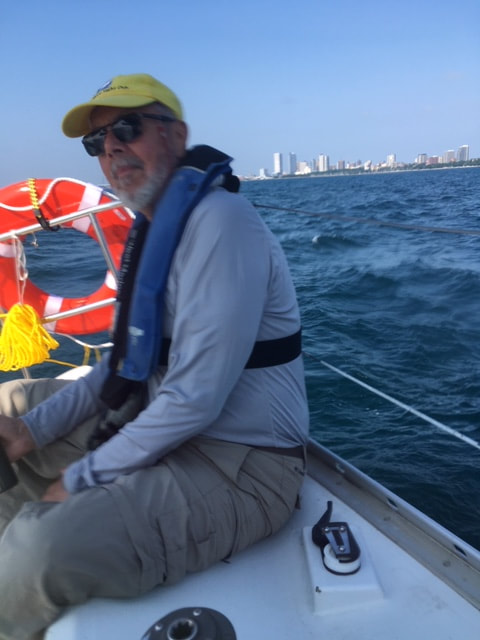How does one enlist in the struggle for the soul of America? And, how do we do so without further dividing the country? As a nation, it feels like we are either screaming at each other or we are holding our breath, hoping that the country doesn’t implode under our own discord. The divisions we feel in America today are real. I was born and raised on southwestern Pennsylvania and talk regularly via social media with friends back there. Many are President Trump supporters. They see their wages declining, their children and friends becoming addicted to drugs, their towns dying and they are looking for someone – anyone - who can turn things around. Politically, culturally, spiritually, and by almost any other measures, it seems that our country is under duress. We recently heard our president offer that if Republicans don’t retain control of Congress in the November mid-term elections, there will be a violent overthrow of conservative policies. This is just another reminder about the intensity of the struggle for control of our country as each faction works to gain or retain power in order to enact policies reflecting their own vision of America. Who we are as a people and what values we espouse through our public policies is the battle ground of our time. But, how do we do so in a way that promotes community and not division? We seem to think this is hard because we forget that we used to do this all the time. The American model of an orderly transition of power began after the bitterly fought election of 1800. The Federalists and Republicans were at odds, each believing that the other – if they should win – would be the downfall of this nascent country. To gain a sense of how deeply divided was the country at that time, consider this quote from Thomas Jefferson as he looked back at the traumatic events of that era: “public discussions…whether relating to men, measures, or opinions, were conducted by the parties with animosity, a bitterness, and an indecency, which had never been exceeded. All the resources of reason, and of wrath, were exhausted by each party in support of its own, and to prostrate the adversary opinions.” When describing the sense of animosity in Philadelphia (the nation’s capital at that time) Jefferson wrote “Men who have been intimate all their lives cross the streets to avoid meeting and turn their heads another way, lest they should be obliged to touch their hats.” Political activists of that time truly believed that the election of 1800 was a fight for the survival of the country. There were sex scandals (yes, even back then), financial crisis, military defeats, a Yellow Fever epidemic, all of which became fodder used for political gain. It wasn’t just the election of 1800 that we saw a deeply divide nation, America has been a country divided throughout much of its history. We were begat in a revolution and after the revolution fought each other – often violently – over land expansion and slavery. Racial tension is woven into the fabric of who we are as witnessed by the nearly 4,000 people lynched in America, most of whom were black. We continue to be a country divided over civil rights, guy rights, war, the environment, abortion, school choice, guns and many other issues. Even with all this strife over much of our history, we have found a way to pull together as a country, to unite around the ideal of America, democracy and freedom. So, how do we do this? How do we engage in the social and political debate without ceding ground to those policies we oppose and do so from a place of community? Here are my suggestions. First – find that goodness within. If we don’t believe that the essence of who we are is rooted in goodness, then how can we see the same for others? Find and trust the goodness in your own heart. Second – find and trust the goodness in those you encounter. That doesn’t mean you acquiesce to them, it simply means that try to look at the issues with their eyes, from their point of view. And do so with an open heart and an open mind. Third – Hold fast to the truth. Speak the truth and hold others accountable for speaking the truth. The goal here is to consistently lift up the truth like a light in a dark cave, but to do so in a way that isn’t strident or demeaning. Here is the ultimate test: can you disagree with a disagreeable person without becoming disagreeable yourself? The key, is to focus on you and not on them. Control what you say, or how you act and what you do. Fourth – focus on building community. Commit to a win-win strategy and stick to it. Before you speak, or take action or take a position, ask yourself: how can I do this in a way that builds community? I wrote previously about a triple love decision making process. Now would be a good time to refresh your memory on it. We Americans are at our best when we recognize our own frailties within others and when we keep our focus on what is best for our community and for our country. Perhaps we don’t really need to fight for the heart of America, we just have to find it within ourselves and own it. We have to find it within our neighbors and cherish it. We have to find it in those who we choose to represent us and who will lift up the spirit of a nation united. Meghan McCain said it well during the eulogy of her father, Senator John McCain. “The America of John McCain is generous and welcoming and bold. She is resourceful and confident and secure. She meets her responsibilities. She speaks quietly because she is strong. America does not boast because she has no need to. The America of John McCain has no need to be made great again because America was always great.” I’m not so sure America has always been great. But I do know that Americans have found a way to get through divisive times before by focusing on what we each can contribute. As Gandhi wrote – “As a man changes his own nature, so does the attitude of the world change towards him. . . . We need not wait to see what others do.” Or, as the Gandhi quote is oft paraphrased, “Be the change you want to see in the world.”
0 Comments
Your comment will be posted after it is approved.
Leave a Reply. |
AuthorMike Soika has been a community activist for more than 30 years working on issues of social and economic justice. His work for justice is anchored by his spiritual formation first as a Catholic and now as a Quaker. Pre 2018 Archives
|


 RSS Feed
RSS Feed
